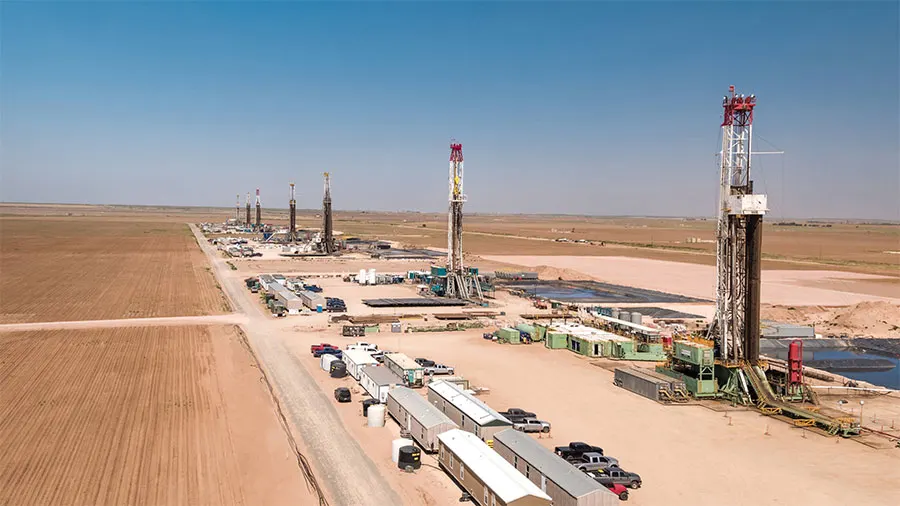TotalEnergies to Sell Stake in Major Nigerian Player
TotalEnergies SE signed a deal to divest its 10 percent interest in a major oil and gas player in Nigeria plagued by oil spills and theft to a locally owned company for $860 million, the French energy giant said Wednesday.
TotalEnergies’ pending exit — the transaction is subject to regulatory approvals — from the SPDC Joint Venture (JV) follows that of Britain’s Shell PLC, which operates the Niger Delta-focused JV through subsidiary Shell Petroleum Development Company of Nigeria Ltd. (SPDC).
National oil and gas company Nigerian National Petroleum Co. Ltd. is the majority owner of the SPDC JV holding 55 percent. Shell owns 30 percent. Eni owns the remaining five percent through Nigerian Agip Oil Co. Ltd.
TotalEnergies is selling its stake to Chappal Energies Mauritius Ltd. The buyer is a Nigerian-owned company, according to information on Chappal Energies’ website.
The transaction covers 15 licenses held by the SPDC JV. These leases produce mainly oil, contributing 14,000 barrels of oil equivalent per day to TotalEnergies net production last year.
The sale also covers three other SPDC JV licenses producing mainly gas and, according to TotalEnergies, accounting for 40 percent of Nigeria’s liquefied natural gas (LNG) supply. However, TotalEnergies will retain a “full economic interest” in the three licenses: Oil Mining Licenses (OML) 23, 28 and 77.
“TotalEnergies continues to actively manage its portfolio in Nigeria, in line with its strategy to focus on its oil offshore and gas assets”, Nicolas Terraz, president for exploration and production at TotalEnergies, said in a company statement.
“After the launch of the Ubeta gas development on OML58 license last month, this divestment of our interest in SPDC JV licenses allows us to focus our onshore Nigeria presence solely on the integrated gas value chain and is designed to ensure the continuity of feed gas supply to Nigeria LNG in the future”.
Last June 20 TotalEnergies announced it had taken a final investment decision to develop the Ubeta gas field. Expected to go onstream 2027, Ubeta has a projected peak production of 300 million cubic feet a day, or about 70,000 barrels of oil equivalent per day including condensates. Gas from Ubeta will feed a liquefaction plant on Bonny island, in which TotalEnergies holds a 15 percent stake.
Shell is also exiting the SPDC JV to focus on Nigerian deepwater assets and downstream gas activities. Shell announced January 16 it had inked an agreement to transfer its stake to Renaissance Africa Energy Co. Ltd. for up to $2.4 billion plus potential contingent payments.
“The transaction has been designed to preserve the full range of SPDC’s operating capabilities following the change of ownership”, Shell said then. “This includes the technical expertise, management systems and processes that SPDC implements on behalf of all the companies in the SPDC Joint Venture”.
The Shell-Renaissance transaction faces a potential regulatory roadblock as the Nigerian Upstream Petroleum Regulatory Commission (NUPRC) plans to assess potential environmental liabilities before it can clear the stake transfer.
Several rights groups had written to the NUPRC calling for the agency to block the divestment until Shell has taken financial responsibility for “legacy pollution” and until the technical capability of the prospective new owner has been established.
The NUPRC said in a statement April 29 it had organized a “due diligence workshop” on the divestment. While the NUPRC called the sale to Renaissance a “noteworthy step forward in Nigeria’s petroleum industry”, it said the workshop had been held “to identify a successor with the financial resources and technical expertise to manage the assets responsibly”.
The NUPRC statement added, “Key considerations include the assessment of environmental liabilities, adherence to regulatory requirements, and industry best practices”.
In the letter to the NUPRC dated April 8, the rights groups including Amnesty International alleged “widespread technical problems” with Shell’s pipeline infrastructure in the Niger Delta resulting in repeated spills.
“[T]he sale of SPDC should not be permitted unless local communities have been fully consulted; the environmental pollution caused to date by SPDC has been fully assessed; funds have been placed by SPDC in escrow sufficient to guarantee that clean-up costs will be covered; and the technical capacities of the beneficial entity have been verified and established”, Amnesty International told the regulator.
Shell says in an FAQs section on its website about the divestment, “SPDC will continue to be accountable for its share of commitments within the SPDC JV, and to conduct any remediation as operator of the joint venture where spills may have occurred in the past from the joint venture’s operations”
“By preserving the full range of SPDC’s operating capabilities, the transaction has been designed to ensure that the company can continue to perform its role as operator and to meet its share of commitments within the joint venture, including those relating to health, safety, security and environment”, it adds.
Shell says on its Nigerian website oil theft and sabotage are to blame for most oil spills from its assets in the Niger Delta. Of 65 incidents reported on the website in the first six months of 2024, six were attributed to an “operational” cause, the rest “sabotage”.
Published: 18-07-2024














